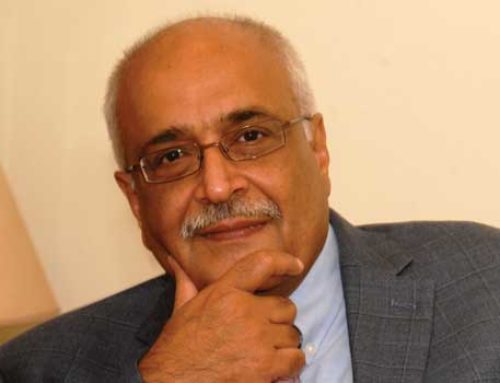The Citizen’s Platform for SDGs, Bangladesh co-hosted a dialogue with The Hunger Project to tap the grassroots’ voices regarding SDGs delivery in the country. The citizen’s dialogue captioned Community intervention for SDG Delivery: Listening to the Grassroots Voices was held on Saturday 20 May 2017 at the CSS Ava Centre, Khulna.
View more news on the event
Published in The Financial Express on Sunday, 21 May 2017
Call to involve grassroots for SDG implementation
Stakeholders from various sectors at a dialogue on Saturday provided local level experiences regarding the challenges faced by elected members of the union council, upazila and city corporations in discharging their duties.
They recommended amendments to relevant legistlations, reforms of mandates and duties and their improvement of financial management related capacity.
They also underscored the need for electing honest and competent ones to the local government bodies.
The participants drew policy makers’ attention to develop Khulna and the coastal region taking note of its vulnerable ecosystem.
The Citizen’s Platform for SDGs, Bangladesh co-hosted the dialogue in Khulna with The Hunger Project to tap the grassroots’ voices regarding delivery of SDGs in the country.
The citizen’s dialogue titled ‘Community intervention for SDG Delivery: Listening to the Grassroots Voices’ was held at the CSS Ava Centre in the city.
The dialogue was attended, among others, by academics, economists, social workers, business leaders, politicians and other professionals from Khulna division.
Khulna City Corporation mayor Md. Moniruzzaman Moni and Khulna divisional commissioner Md. Abdus Samad were present as the special guests.
Dr Mustaque Raza Chowdhury, core group member of SDG Platform and vice-chairperson of BRAC, shared his views on the theme of the dialogue which was chaired by Dr Devapriya Bhattacharya, convener of the Citizen’s Platform for SDGs, Bangladesh and a distinguished fellow of Centre for Policy Dialogue (CPD).
Dr Baidul Alam Majumdar, country director of The Hunger Project, in his presentation highlighted different awareness aspects of the 2030 agenda focusing on Goal 16 dealing with rule of law and institutions, human rights and good governance.
He also emphasised the need to engage the government officials, local government representatives, and conscious citizens in a development partnership while elaborating some successful field level models in this regard.
The divisional commissioner informed the gathering about various innovations that the government is pursuing in the area of public administration and governance.
As an example, he cited an initiative to make Khulna free of beggars and provide them with livelihood opportunities.
Mayor Moni explained the need to effectively mobilise and neutralise local level resources and the need to have greater coordination among the city corporation and other agencies of public utilities.
The mayor referred to the problem of water logging and bad state of the city roads and called for better coordination between city corporation and Khulna WASA.
He also mentioned the need for better governance in the overall government machinery so that the local government representatives can perform more efficiently and honestly.
Dr Mustaque Raza Chowdhury was of the view that achieving SDGs will be more challenging than attaining the MDGs in Bangladesh.
Notwithstanding our high success in MDGs, he said, Bangladesh stays behind the achievements in comparable other countries.
For example, he said, maternal mortality rate in Bangladesh is still twice the same in Sri Lanka.
In his concluding remarks, Dr Debapriya Bhattacharya emphasised the need for having an effective countrywide local government platform so that the voices of the local and grassroots leaders can resonate in the corridors of power in Dhaka.
He reckoned that a strong social movement by the citizens will make that happen in the interest of implementing SDGs in the country.
Published in The Independent on Sunday, 21 May 2017
Experts for tapping grassroots voices to achieve SDGs
The Citizen’s Platform for SDGs, Bangladesh and the Hunger Project jointly arranged the citizen’s dialogue titled ‘Community Intervention for SDGs Delivery: Listening to the Grassroots Voices’ at the CSS Ava Centre in the city.
Presiding over the dialogue, Platform convener Dr Debapriya Bhattacharya emphasised the need for having an effective countrywide local government platform so that the voices of local and grassroots leaders can resonate in the corridors of power in Dhaka.
He said a strong social movement by citizens will help implement the SDGs.
Country director of the Hunger Project Dr Baidul Alam Majumdar, in his presentation, focused on engagement of government officials, local government representatives, and conscious citizens in a development partnership to implement the 2030 global agenda in the country.
Khulna city Mayor Md Moniruzzaman Moni explained the need to effectively mobilise and neutralise local level resources and the need to have greater coordination among the City Corporation and other utility service providers.
He said better governance in overall government machinery is essential for local government representatives to perform more efficiently and honestly.
Khulna Divisional Commissioner Md Abdus Samad said the government is pursuing various innovations in the area of public administration and governance.
He cited that the government has taken an initiative to make Khulna city free from beggars by rehabilitating them with alternative livelihood opportunities.
Brac Vice-chairperson Dr Mushtaque Raza Chowdhury pointed out that achieving the SDGs will be more challenging than attaining the MDGs in Bangladesh.
“Notwithstanding our high success in MDGs, Bangladesh remains behind the achievements in comparable countries. For an example, maternal mortality rate in Bangladesh is still twice high than that in Sri Lanka,” he said.
Academics, economists, social workers, business leaders, politicians and other professionals from the Khulna Division joined the dialogue, said a press release.






